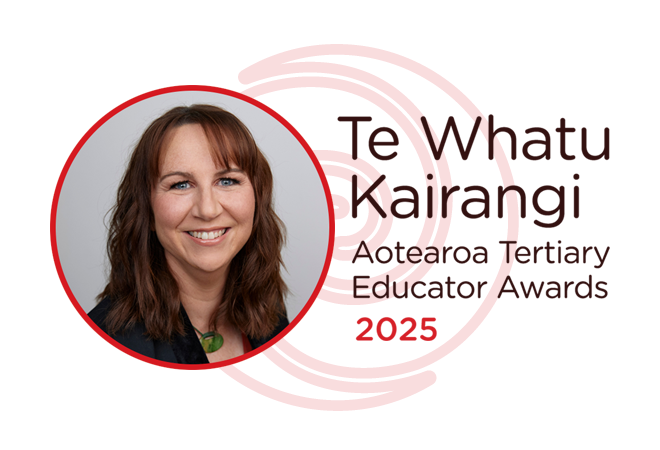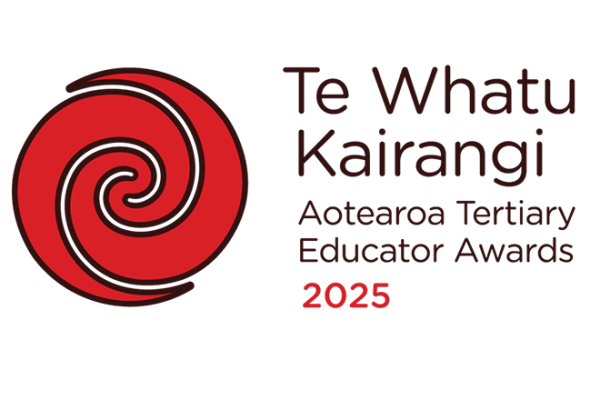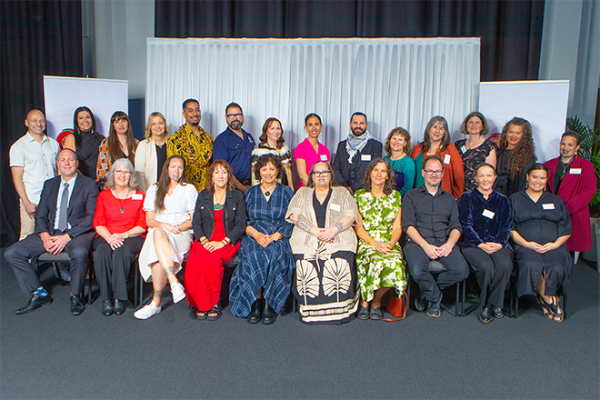Associate Professor Melissa McLeod
A luminary in her field
Kaupapa Māori Award winner

Associate Professor, public health physician and Kaupapa Māori epidemiologist, Ōtākou Whakaihu Waka | University of Otago, Wellington
Ngai Tahu
"My teaching is grounded in love for my whānau and iwi, and a drive to address social injustice."
Melissa’s passion for public health and epidemiology began in her childhood, when she became curious about the differences and patterns she was seeing between the Māori and European sides of her own whānau. She remembers attending the tangi of her great aunts and uncles aged in their early sixties, who died of what should have been preventable causes like asthma and heart disease, whilst watching her European family aging into their 80s and 90s. Her training in public health medicine and Kaupapa Māori epidemiology have given her the language and frameworks to articulate the patterns and connections she observes in her own whānau: a gift she feels honoured to share with her students.
Melissa is an Associate Professor, public health physician and Kaupapa Māori epidemiologist based in Te Rōpū Rangahau Hauora a Eru Pōmare at Ōtākou Whakaihu Waka (University of Otago), Wellington. She has been teaching for ten years across diverse contexts, including general undergraduate courses for medical students, postgraduate courses as course convenor and lecturer, and specialised Kaupapa Māori epidemiology sessions for health professionals and organisations. She has recently delivered Kaupapa Māori epidemiology guest lectures for Auckland University, workshops for the New Zealand College of Public Health Medicine (NZCPHM) and Te Whatu Ora staff and facilitates regular journal clubs for the Māori Public Health Medicine Registrars. She provides formal and informal mentoring of Public Health Medicine Registrars and actively supports Māori students on the Wellington campus. She also regularly advises and supervises Master of Public Health and PhD projects focused on equity and Māori health.
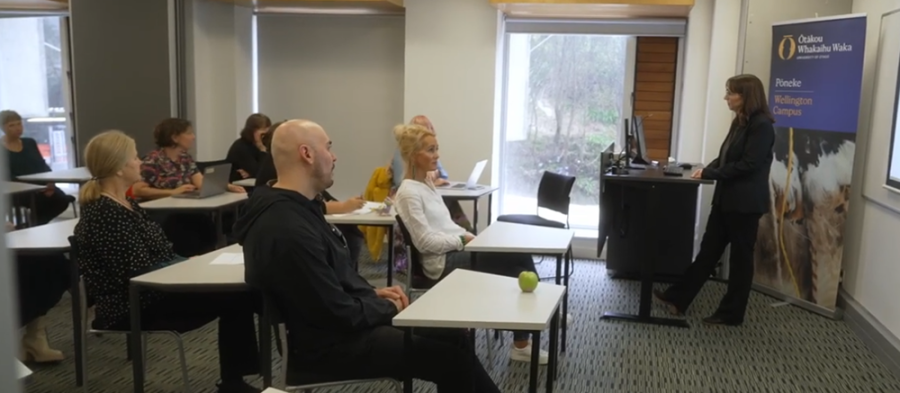
Melissa is a leader in Māori public health teaching who integrates Kaupapa Māori principles and pedagogy across all aspects of her work. She actively contributes to the Ōtākou Whakaihu Waka: Māori Strategic Framework 2030 by embedding tikanga Māori, te reo Māori, and mātauranga Māori into her teaching practices. As a senior Māori staff member, she supports Māori staff and learners to achieve their potential while aligning curriculum design and teaching approaches with Māori aspirations for equity and health advancement. Being a Māori lecturer in general courses allows her to connect core public health and epidemiological concepts with applied examples of impactful and high-quality Kaupapa Māori public health and epidemiology, drawing from her own work in cancer screening, ethnicity data quality, and modelling of health interventions from an equity perspective.
Melissa’s students range from undergraduate learners to experienced health professionals, and classes vary in both size (10-300) and mode of delivery. Her teaching emphasises critical engagement with public health and epidemiological concepts through an equity lens, drawing from her own positioning and experiences. She encourages learners to reflect on their power and positioning, better enabling them to identify and address systemic health inequities. She faces the dual responsibility of challenging biases, stereotypes and victim-blaming language of students whilst also creating culturally safe learning spaces to demonstrate the relevance and application of mātauranga Māori in evidence-based practices. Central to her teaching is the recognition and affirmation of Māori rights to health, as guaranteed by Te Tiriti o Waitangi. Melissa developed a postgraduate Kaupapa Māori Epidemiology workshop to integrate Māori-led research on ethnicity data quality and racism as a health determinant into a previously "traditional" epidemiology course. She is thought to be the only epidemiologist in this country who delivers general epidemiology courses through a Kaupapa Māori lens. She uses technology to enhance collective learning and engagement, reflecting mātauranga Māori principles. This includes using interactive tools like Slido to encourage knowledge-sharing, and podcasts that align with kaitiakitanga (stewardship) by ensuring knowledge remains accessible and supports diverse learning styles.
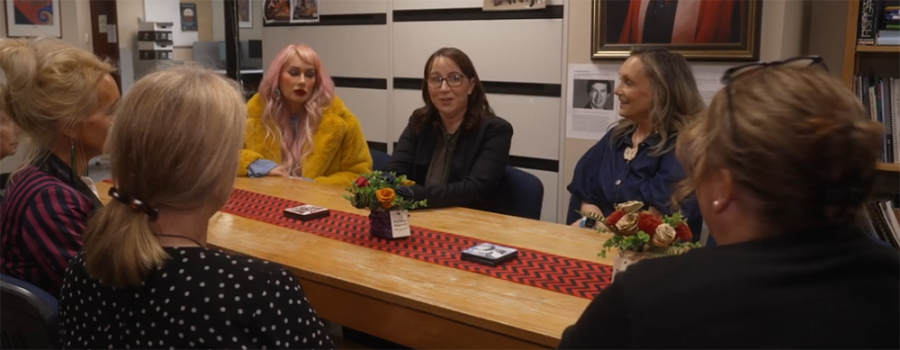
Supporting Māori learners is a cornerstone of Melissa’s teaching. She provides mentoring and personalised support through initiatives like public health revision sessions for Māori 5th year medical students, workplace mentoring of Māori Public Health Medicine Registrars, and pastoral support for the wide-ranging challenges faced by Māori students within the tertiary education system. In 2019/20, as part of a teaching team, Melissa contributed to the development of a new undergraduate public health module for 4th year medical students. She provided content for sessions on bowel cancer management, prioritisation and bias workshops and developed teaching approaches to acknowledge and support those with lived experiences and to create culturally safe learning environments. In 2020, the teaching team received an international award from the Council of Academic Public Health Institutions Australasia (CAPHIA) ‘Award for Excellence and Innovation in Public Health Teaching’ for the MICN401 Public Health module.
Between 2022 and 2024 Melissa was the overall convenor of Principles of Epidemiology, leading the three teaching centres (Wellington, Christchurch and Dunedin). Historically, this core paper delivered poor outcomes for Māori students, with a disproportionate rate of course failure for these students. She led the development of a strategy to address this issue, which included introducing close monitoring of the progress of the Māori students during the course and providing additional sessions and pastoral support where required. As a result, the pass rate for Māori completing that paper has been higher than the pass rate for non-Māori over the last three years (100% vs around 95% respectively) and in Wellington has achieved a 100% pass rate for Māori students over the past three years.
Melissa’s influence in Māori public health and epidemiology extends beyond the classroom and directly informs her teaching. Her service on numerous committees and advocacy for equity-driven approaches reflect her commitment to systemic change. Current committees include Pae Whakatere (oversight of the BreastScreen Improvement Action Plan) and Te Tauraki IMPB Data Subcommittee. Previous roles include Directorship on ESR Board, advisor to PHARMAC, Bowel Screening Advisory Group, and the Māori Monitoring and Equity Advisory Groups. These roles enable her to champion Māori health priorities, ensuring that public health policies and practices align with Māori aspirations.
"Central to my teaching is the recognition and affirmation of Māori rights to health, as guaranteed by Te Tiriti o Waitangi."
